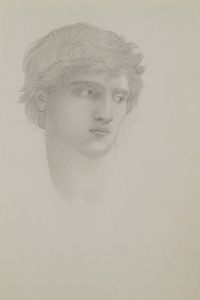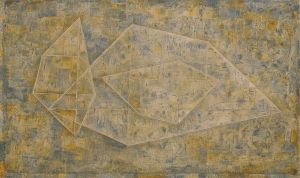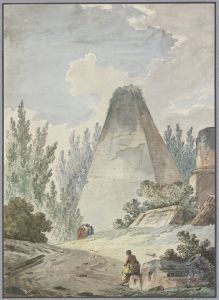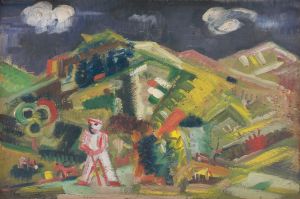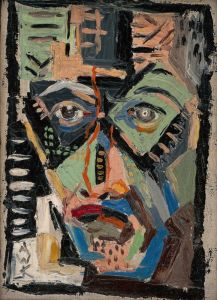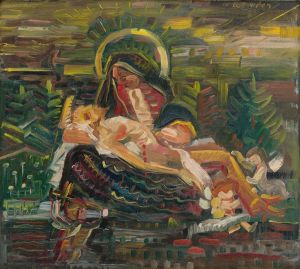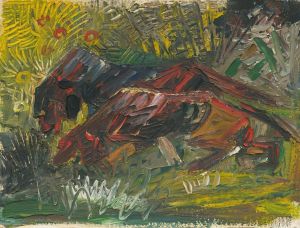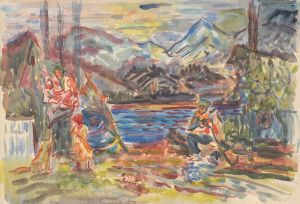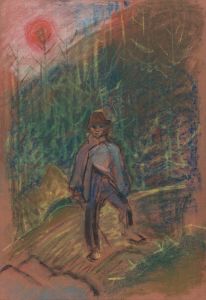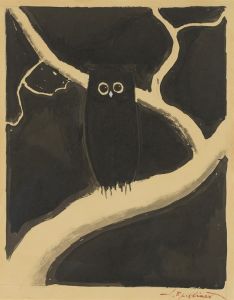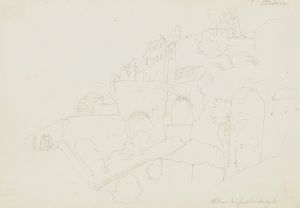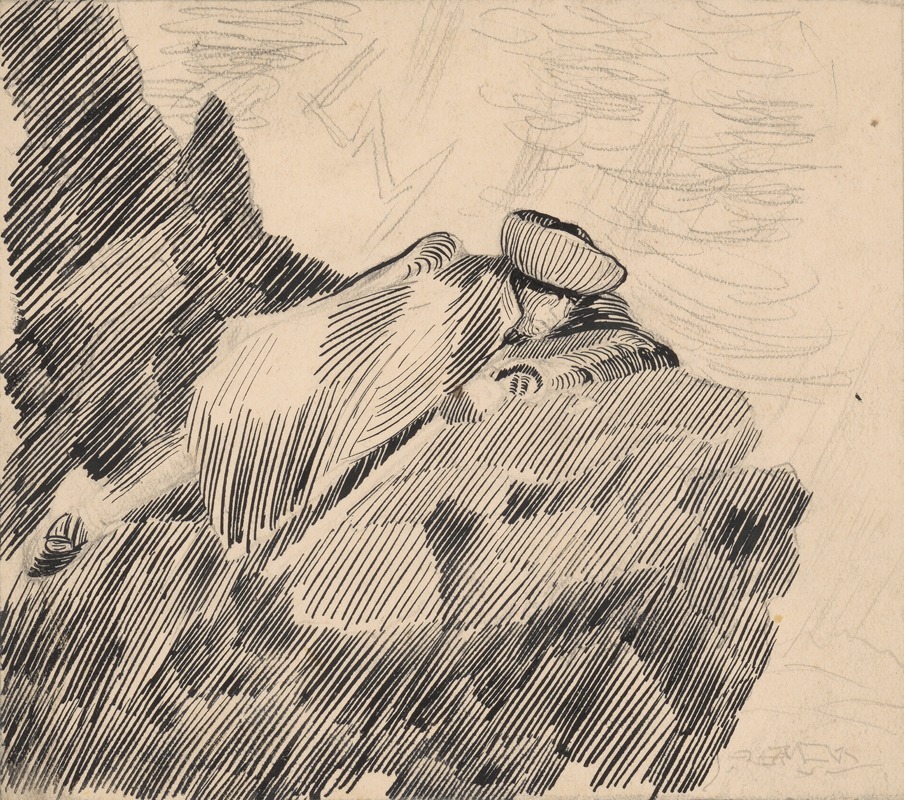
Man Reclining on a Rock
A hand-painted replica of Arnold Peter Weisz-Kubínčan’s masterpiece Man Reclining on a Rock, meticulously crafted by professional artists to capture the true essence of the original. Each piece is created with museum-quality canvas and rare mineral pigments, carefully painted by experienced artists with delicate brushstrokes and rich, layered colors to perfectly recreate the texture of the original artwork. Unlike machine-printed reproductions, this hand-painted version brings the painting to life, infused with the artist’s emotions and skill in every stroke. Whether for personal collection or home decoration, it instantly elevates the artistic atmosphere of any space.
Arnold Peter Weisz-Kubínčan was a Slovak-Jewish painter and graphic artist whose works are often associated with modernist and expressionist movements. His painting Man Reclining on a Rock is one of the few surviving pieces attributed to him, as much of his oeuvre was tragically lost during World War II. Weisz-Kubínčan was born in 1898 in the Austro-Hungarian Empire (modern-day Slovakia) and studied art in Budapest and Vienna, where he was influenced by the artistic currents of the early 20th century.
Man Reclining on a Rock reflects Weisz-Kubínčan's distinctive style, which often combined elements of symbolism, abstraction, and emotional intensity. The painting depicts a solitary male figure reclining on a rock, rendered with bold lines and a dynamic composition. The figure's posture and the surrounding environment suggest a moment of introspection or rest, though the exact interpretation of the work remains open to the viewer. The use of earthy tones and textured brushstrokes evokes a connection to nature, a recurring theme in Weisz-Kubínčan's art.
Weisz-Kubínčan's career was tragically cut short during the Holocaust. As a Jewish artist living in Slovakia during the rise of Nazi influence, he faced increasing persecution. In 1944, he was deported to a concentration camp, where he was killed. Much of his artwork was destroyed or lost during this period, making the surviving pieces, including Man Reclining on a Rock, particularly significant.
Today, Weisz-Kubínčan's work is recognized for its artistic and historical value. His surviving paintings and drawings are preserved in museums and private collections, serving as a testament to his talent and the cultural loss caused by the Holocaust. Man Reclining on a Rock stands as a poignant reminder of his artistic vision and the resilience of his legacy despite the tragic circumstances of his life.





